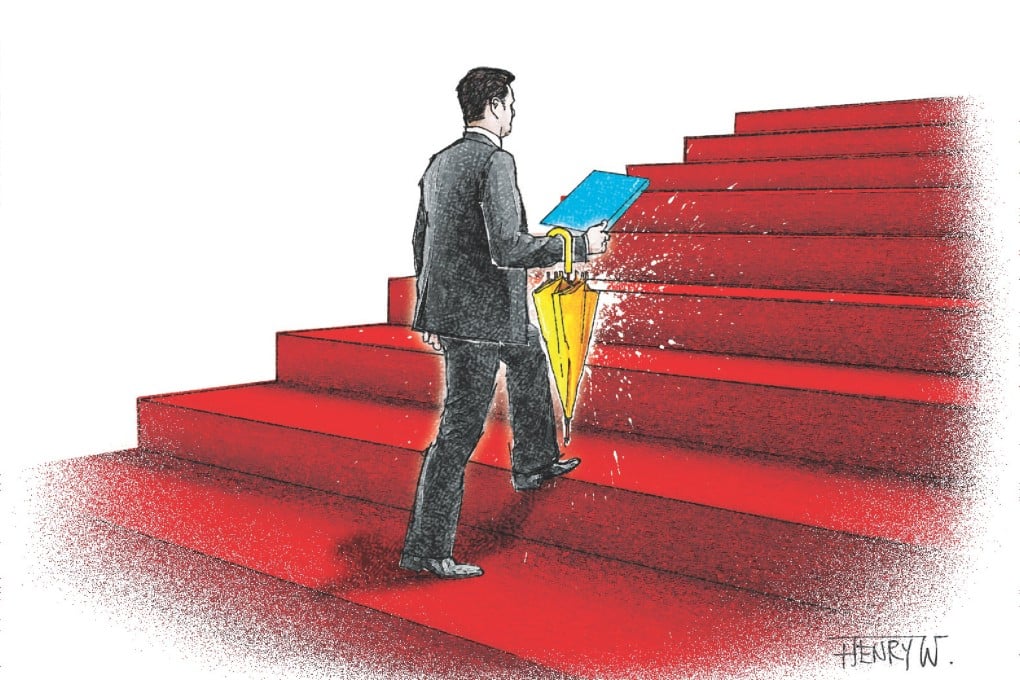Post Occupy, will the government speak for the Hong Kong people?
Michael C. Davis says leading Occupy protesters should now focus on winning public support for their campaign, while putting pressure on officials to act in Hong Kong's best interests

Looking out at "Umbrella Square" the morning after the clearance, with cars humming by and workers scraping the last remnants of the yellow stickers off the adjoining government buildings, one may ask: how significant was this Occupy protest and, what next?
This was the place where the best of Hong Kong youth spoke truth to power and where they built a city on the paved highway. Last Thursday, power spoke back as the Hong Kong government hauled away our youthful leaders, several elected legislators, the father of our democracy movement and even a leading pro-democracy publisher.
The humming of the passing cars and the ordinariness of the now cleared streets may lull Hong Kong's leading officials into complacency, thinking they have solved the problem. They would be wrong.
Umbrella Square, like other famous squares, will surely linger on in the hearts and minds of the people. The youthful exuberance, flashing cellphone lights, public seminars, yellow umbrellas, street art, tent city, community service, study halls, "shopping trips", occasional flare-up of confrontation, global media scrum, court orders, bailiffs, pepper spray, tear gas and 7,000 police clearing the streets will not soon be forgotten. Even as the protesters are driven from the public space, they have taken back the city or at least the hearts of many of its people.
These things have combined to create a standard by which the governments in Beijing and Hong Kong will long be measured. Taking liberty with Basic Law commitments to universal suffrage, the rule of law and basic human rights will not pass the test. The diminished autonomy and weakened rule of law outlined in the white paper does not pass the test. Nor does the managed election required by the National People's Congress Standing Committee decision.
These governments are surely on notice that they will do as they please at their peril. Continuing central government interference in Hong Kong's autonomous affairs will no longer go unnoticed.